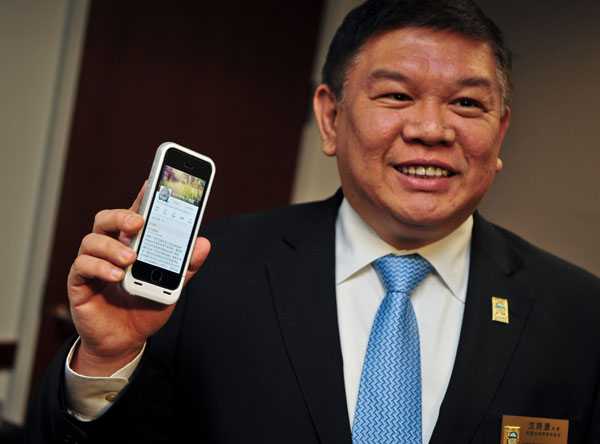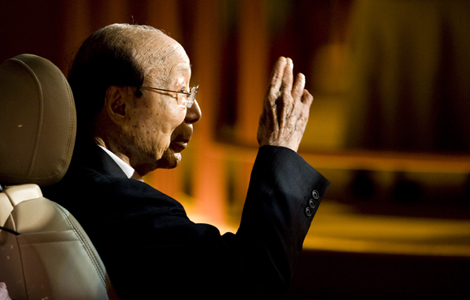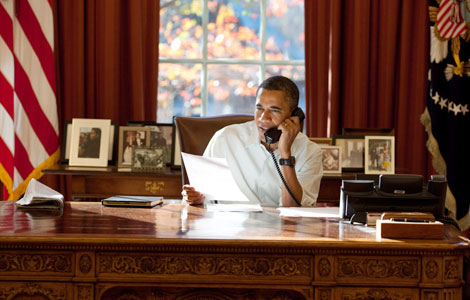US police all a-twitter about Weibo
Updated: 2014-01-10 08:51
(China Daily)
|
|||||||||||
 The mayor of Alhambra, Steve Sham, displays the Weibo screen.[Zhang Chaoqun / Xinhua] |
Socio-cultural barriers
When Yokoyama accepted the position of chief of police in June 2011, one of his stated priorities was an improvement in community engagement.
Although that engagement applies equally to all sections of society, the marked lack of integration by the Chinese population was the driving force behind Yokoyama's decision to launch the Weibo account, especially as the community is large and its business presence is considerable.
|
 |
Chinese people in Alhambra tend to be first- or second-generation immigrants, which means they have lived in the community for a shorter period of time than their Latino and white neighbors, said Nien-Tsu Chen, a researcher at the University of Southern California's school of journalism.
According to Yu, in addition to the community's relative newness, socio-cultural barriers also have to be overcome. He pointed out that life in China revolves around the family, so when Chinese people move to the US they have to adapt to a wider concept of community.
Although Asian people are often regarded as education-oriented, many Chinese immigrants have attracted attention because of their wealthy backgrounds, especially the most-recent arrivals, called "parachute kids" by non-Chinese locals. They are the children of ultra-wealthy families, who have been sent to live with their relatives in the US Asian community, and have little parental supervision, but plenty of money.
Around seven years ago, Hung left Houston and moved to China for work. Before his departure, though, he noticed an increasing number of people from the Chinese mainland arriving in his community, which was predominantly Latin in character.
Around 30 years ago, the first generation of Chinese that emigrated to Los Angeles had no choice but to work and support their families. As a minority, they struggled to survive, floated between jobs, and many were forced to go back to college to gain the sort of education that would guarantee a better job.
Family well-being
But even within the Chinese community, clear social distinctions are apparent. "We found that people from the mainland are the only group where no one votes in local elections, which is a major civic activity," said Chen from USC.
In response, the mainlanders maintain that being politically active is not part of Chinese culture, and instead of being active in civic affairs, they prefer to focus their energies on ensuring the well-being of their families.
"We definitely vote because the results (of elections) will greatly influence our daily life in the near future, but in terms of other activities, we participate very little. People are busy," said Kenny Chang from Rancho Palos Verdes, Los Angeles, a 45-minute drive from San Gabriel Valley, a community with few Chinese residents.
As a "1.5" generation of Chinese American, who was born in Taiwan and moved to the US with their family at an early age, Chang believes a diverse population brings energy, but can also be a source of problems. Remaining in an identifiable social and cultural background is a common feature of people in diversified communities, although choices vary between individuals.
Today's Top News
Security alert in S.Russia before Sochi Olympics
Apology urged for insulting Chinese
China to enhance role in Mideast
Higher targets for emission reduction
Analysts weigh in on reform effacts
New ambassador to the EU takes up reins
Top court seeks judicial transparency
China has most outbound tourists
Hot Topics
Lunar probe , China growth forecasts, Emission rules get tougher, China seen through 'colored lens', International board,
Editor's Picks

|

|

|

|

|

|





